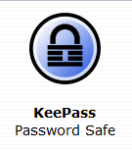TL;DR – Use this version of LameACM on Windows 10 64-bit. The other versions floating around will install but may not be recognized Over the years I’ve kept forgetting how to do things and then had to re-create a process I’ve done before but forgotten. Thankfully Google makes this much easier than it was 20 years ago but it’s still a pain. My latest foray into that thicket was when trying to re-install LameACM on Windows10 64-bit. LameACM is a module for windows archaic Audio Codec Manager. It allows any Windows program that used the ACM framework to see the codec the module presents. This is a must for using a variety of freeware multimedia tools, such as VirtualDub, so the user can encode MP3 files. Most commercial[…]
Adam and The Chinese
Just pulled a couple of spam voicemails out of my phone that I felt like sharing. The first is an older one from a Mr. Adam Fuck, who leaves quite an impression in only a few seconds: The second is some nice Chinese lady, who I’m sure is in a lounge because of the music, and I think she’s trying to ask for asylum. I’m not sure…
Walt Disney recently announced a new service called MoviesAnywhere, aiming to link all your purchased videos from other vendors into one streaming service. Yes, this is pretty much what Disney meant when it announced it would be making its own streaming service. They’re retiring the old “Disney Movies Anywhere” service (which maybe didn’t quite make it clear it includes PG-13 titles from Marvel alongside the G-rated talking animals). The roll-out isn’t exactly perfect but hasn’t been a disaster. My personal experience was one of annoyance when I couldn’t login to the website using my Google account. I tried on a PC with Firefox, and on an Android device with Chrome. Eventually I figured out I needed to have 3rd party cookies enabled. Disney made the mistake of not[…]
Passwords Suck Long ago I gave-up trying to remember all the passwords I use for websites. I used to be able to use the same few passwords everywhere (and they didn’t even have to be eight characters long). I didn’t use terrible passwords. Something like “v#kt0r!” was pretty good by standards in 2005. But cracking passwords, hash look-ups and brain-dead practices mean you can’t do that anymore. Did you have a super-secure long password on Sony’s Playstation Network back around 2011? Not anymore I bet. Many people in the industry started suggesting using password templates or patterns, where you’d have the same basic password but tailor it per site. Or use the same password across financial sites, a different one for social sites, etc. Yet the issue was[…]



